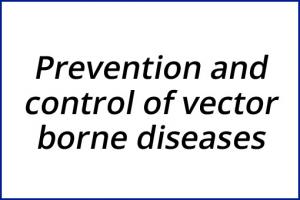- Chandigarh UT
- Creative Corner
- Dadra Nagar Haveli UT
- Daman and Diu U.T.
- Department of Administrative Reforms and Public Grievances
- Department of Biotechnology
- Department of Commerce
- Department of Consumer Affairs
- Department of Industrial Policy and Promotion (DIPP)
- Department of Posts
- Department of Science and Technology
- Department of Telecom
- Digital India
- Economic Affairs
- Ek Bharat Shreshtha Bharat
- Energy Conservation
- Expenditure Management Commission
- Food Security
- Gandhi@150
- Girl Child Education
- Government Advertisements
- Green India
- Incredible India!
- India Textiles
- Indian Railways
- Indian Space Research Organisation - ISRO
- Job Creation
- LiFE-21 Day Challenge
- Mann Ki Baat
- Manual Scavenging-Free India
- Ministry for Development of North Eastern Region
- Ministry of Agriculture and Farmers Welfare
- Ministry of Chemicals and Fertilizers
- Ministry of Civil Aviation
- Ministry of Coal
- Ministry of Corporate Affairs
- Ministry of Culture
- Ministry of Defence
- Ministry of Earth Sciences
- Ministry of Education
- Ministry of Electronics and Information Technology
- Ministry of Environment, Forest and Climate Change
- Ministry of External Affairs
- Ministry of Finance
- Ministry of Health and Family Welfare
- Ministry of Home Affairs
- Ministry of Housing and Urban Affairs
- Ministry of Information and Broadcasting
- Ministry of Jal Shakti
- Ministry of Law and Justice
- Ministry of Micro, Small and Medium Enterprises (MSME)
- Ministry of Petroleum and Natural Gas
- Ministry of Power
- Ministry of Social Justice and Empowerment
- Ministry of Statistics and Programme Implementation
- Ministry of Steel
- Ministry of Women and Child Development
- MyGov Move - Volunteer
- New Education Policy
- New India Championship
- NITI Aayog
- NRIs for India’s Growth
- Open Forum
- PM Live Events
- Revenue and GST
- Rural Development
- Saansad Adarsh Gram Yojana
- Sakriya Panchayat
- Skill Development
- Smart Cities
- Sporty India
- Swachh Bharat (Clean India)
- Tribal Development
- Watershed Management
- Youth for Nation-Building
Prevention and control of vector borne diseases

Start Date :
Feb 19, 2015
Last Date :
Mar 19, 2015
00:00 AM IST (GMT +5.30 Hrs)
Many vector-borne diseases are transmitted by arthopods (mosquitoes, ticks, mites etc) and have prevalent in India namely malaria, dengue, chikungunya, filariasis and kala azar and ...


IT IS VERY EASY TO CONTROL MALARIA /DENGUE SEE presentation
Honb'le Sir, i think people should be made aware that the preventive mechanism are far better than the cure procedure. this project needs to be linked with Swatch Bharat Abhiyan, Education, dissemination of information through newspaper, social networking sites, bureaucratic level, i.e asking the DM, SDM, BDO etc to take public meetings on these issues. Schools and the local bodies should be asked to prepare a plan to maintain a health card, and thereafter linking it with the UIDAI card.
I am a PhD student and related with filarial survey. One thing I experienced is the utmost need of proper sanitation without which you can't control these diseases, proper sensitization of problem, severe staff crunch is there which is again hampering the programs. In addition to this, monitoring of programs should be done under Gov operated regional offices and not under state operated as we have noticed better results where monitoring is being done by ICMR regional institutes.
I like direct door to door selling
I am a Medical officer and I have registered for PhD for mosquito control and fever rate
The topic suggest innovative ways to tackle the problem
Again
It is very difficult to convince A patient of Dengue ,that It is very easy to to prevent dengue
i like direct selling
i like direct selling it helps me alot for financial problem
A two level approach is required. One- sensitisng the people about the nature of the spread of the diseases and there by involving in preventive measures at early stages before the situation turns into epidemic level. In the beginning of the season identification of pockets of danger and periodic fogging is required.
Second level- a good amount spent by the govt. on target oriented research on the issue will save crores of rupees (spent at individual level for medication).
sir,please consider the genetic sterilization of the mosquitoes and increase the pace of research in this.many developed countries had successfully adopted this method.in my opinion this is the best way in India to curb mosquito borne diseases.and also i would to make you know that this genetic manipulation is a reversible process in a easy manner.
Prepare large level trained workforce to educate school going children as well as children who are not able to attend school about prevention and control activities by educational as well as demonstration mode. I think there is a strong need of trained "Yoga & Health Education" teacher for every school in India.